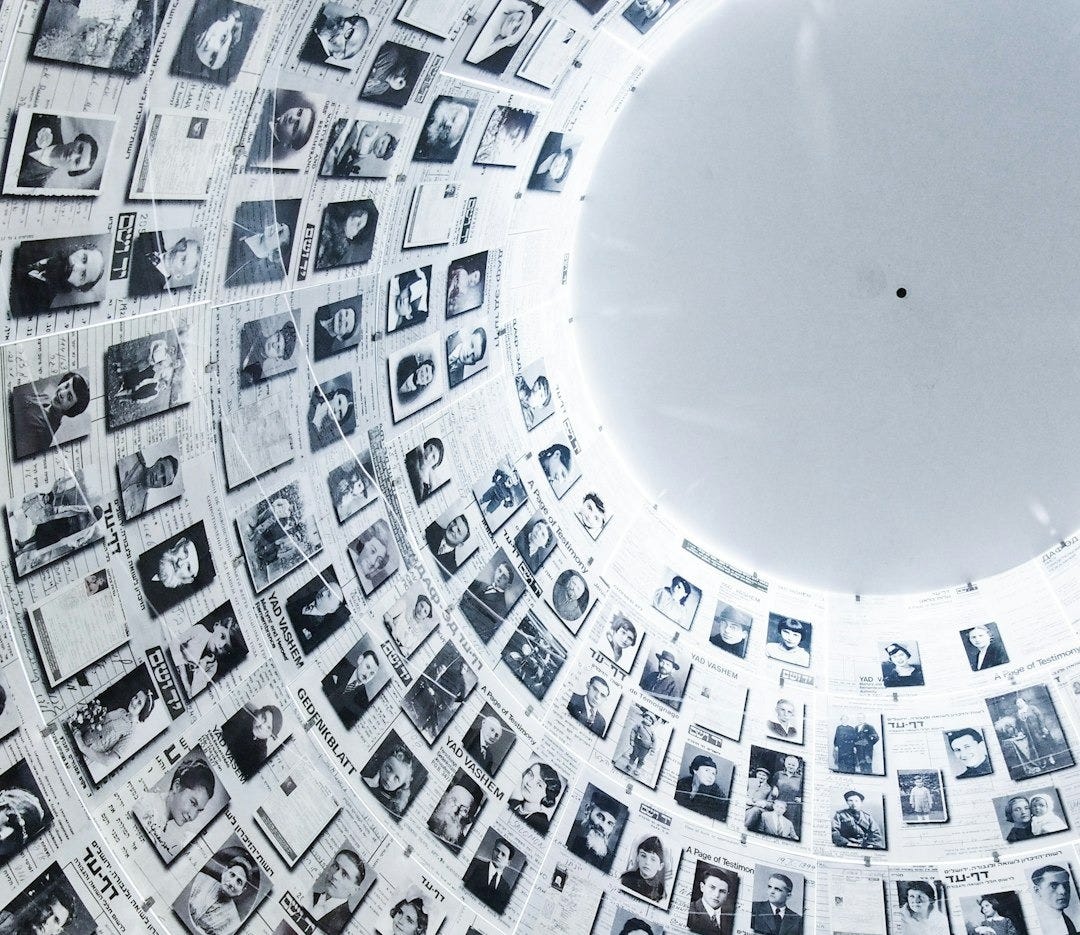This essay is part of a new collection of work inspired by the anthology On Being Jewish Now: Reflections of Authors and Advocates. Want to contribute? Instructions here. Subscribe here.

I was on my way to the airport on October 7, 2023, when I saw the news about the Hamas attacks on Israel. As I waited to board the plane to Europe, I anxiously refreshed the news on my phone and texted with family and friends. A million thoughts raced through my mind. What is going on in Israel? Is my family safe? Is it safe to travel? And, most importantly: What would my mother do?
My mother passed away in 2019, but she was the reason for my trip: I was scheduled to give a lecture about her experiences at a Holocaust conference in Belgrade. As the son of Eva Mozes Kor and Mickey Kor, two Holocaust survivors of blessed memory, I knew, deep down, that I had to complete my mission. My parents would never have given up.
My family's story is not an easy one to tell—or to hear. In 1941, Nazi troops sent my father to a Latvian ghetto before deporting him to several concentration camps, including Buchenwald. He endured four years of grueling labor under unimaginable conditions. While more than 56,000 people were murdered at Buchenwald, my father managed to escape, with the aid of U.S. troops, and emigrated to America to begin life anew.
In 1944, my mother, Eva, and her family were sent by cattle car to Auschwitz. On the selection platform, Eva and her twin sister Miriam were torn from their parents and other siblings—the last time they would ever see their family. The sisters were subjected to the inhumane experiments of Dr. Josef Mengele, AKA "The Angel of Death." Beating impossible odds, they survived and were liberated by Allied troops in 1945. Despite the horror of their youth, my parents found a life together, built an incredible future, and over time, they both miraculously learned to forgive.
My own journey has been marked by both struggles and miracles. On Halloween night in 1972, my classmates pelted our home in Terre Haute, Indiana with kernels of corn, and scrawled antisemitic slurs on the windows. Months later, I was attacked by Jew-hating bullies. At 26, while I was in podiatric medical school, I was diagnosed with cancer. But—following the example of my parents—I endured and overcame each challenge.
When I deliver school lectures about my parents’ experience, I am often approached by Jewish students looking for advice: how they should handle antisemitism? Their experiences of being demeaned and harassed are disturbingly similar to what I faced in the 1970s. While I miss my parents dearly, I am grateful that they aren't physically present to witness the tragic events in Israel or the rise of antisemitism. My mother practiced forgiveness throughout her life, but I believe that the horrors of October 7 would have strained her limits.
Being Jewish in today’s world means that I refuse to be on the sidelines. I, like my parents, need to voice my intolerance for hate, and remind people what can happen when words lead to terrible actions. If not now, then when? And if not us, then who?
My mom often said, with characteristic humility, that if she could make a difference in the life of one person, she would feel that she had accomplished something on this earth. By the time of her passing, she had made a difference in so many lives that it added up to much more than "something.” She spent decades traveling the world, giving as many as 200 lectures per year. She even summoned the courage to return to Auschwitz—three-dozen times— to lead groups of students and teachers through the site. She founded CANDLES Holocaust Museum in Indiana and worked with legislators to pass a state law mandating Holocaust education in secondary schools.
As antisemitism festers across the world, we must remember one of the most horrific periods in human history and acknowledge that we are not as far removed from those dangers as we’d like to think. Yet, the stories of our families attest to the resilience of the human spirit.
Our obligation to carry on their legacies may seem daunting, but we have a collective responsibility to preserve survivors' accounts and educate the world about the Holocaust. We must see our responsibility as a blessing, not a burden. I often think back to what my mother said, shortly before she passed: "Our work is far from done.”
Dr. Alex Kor is the co-author of A Blessing, Not a Burden: My Parents’ Remarkable Holocaust Story and My Fight to Keep Their Legacy Alive and a member of the CANDLES Holocaust Museum Board of Directors.
This essay is part of a new collection of work inspired by the anthology On Being Jewish Now: Reflections of Authors and Advocates. Want to contribute? Instructions here. Subscribe here.




